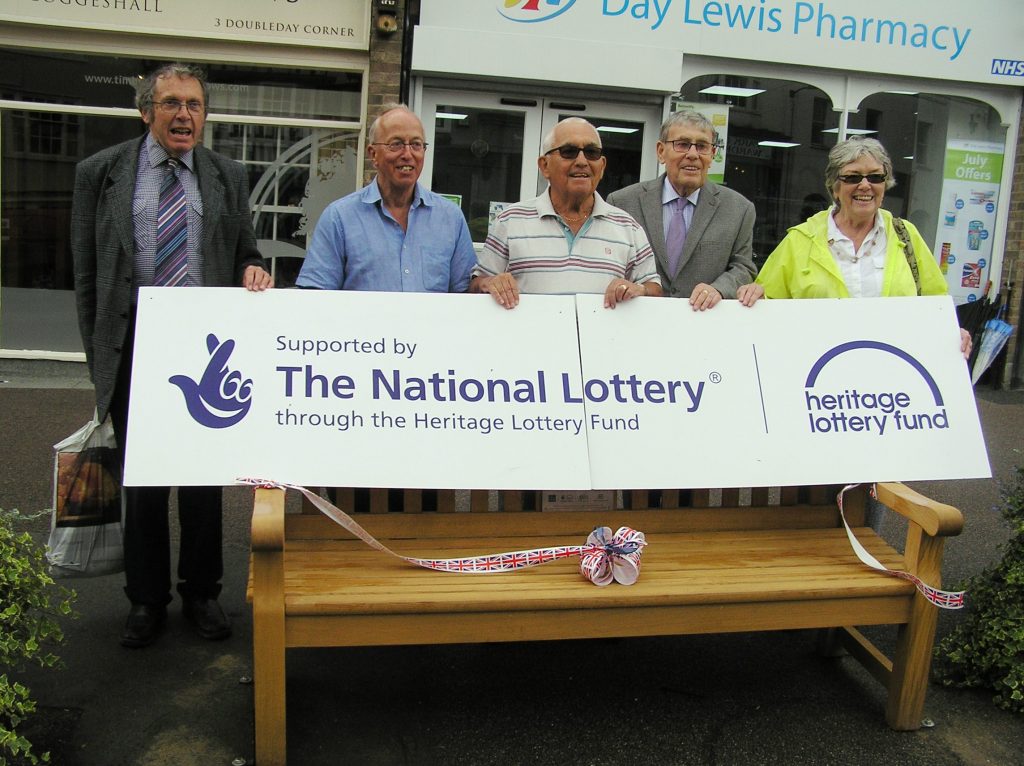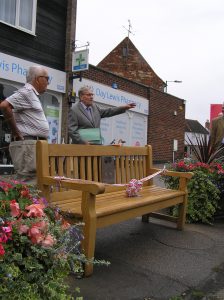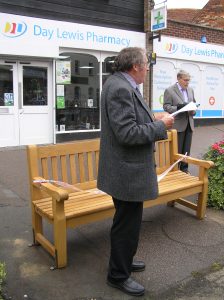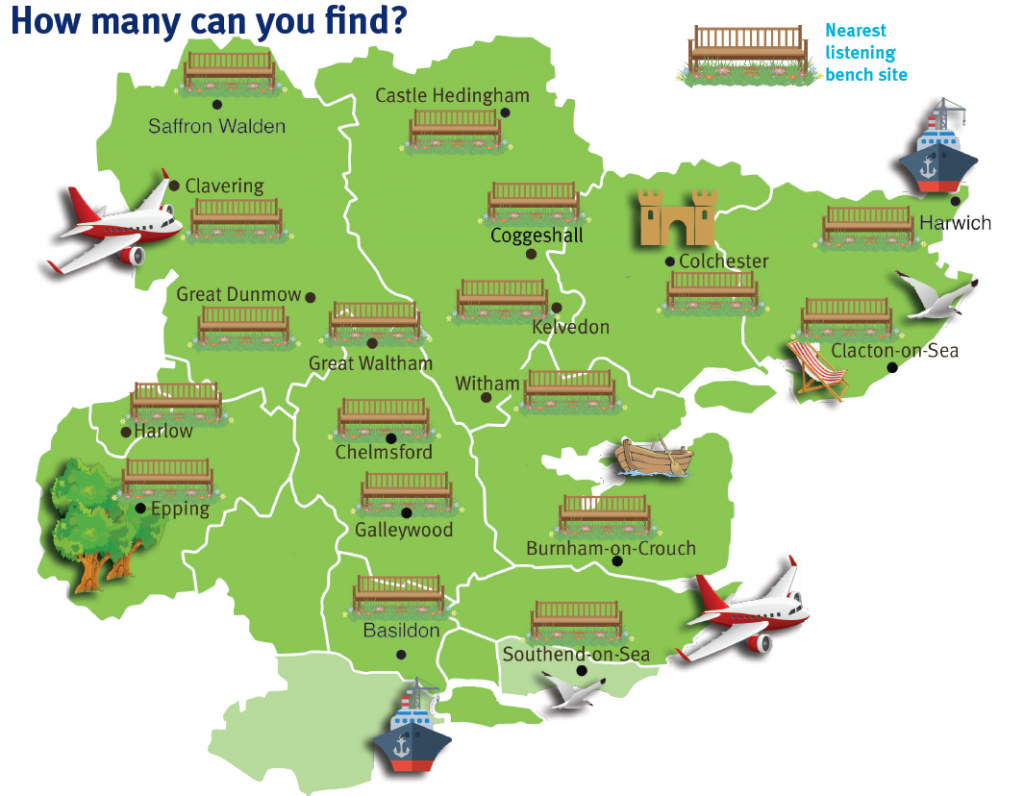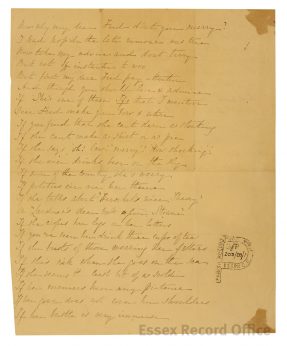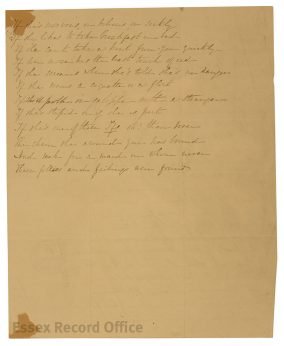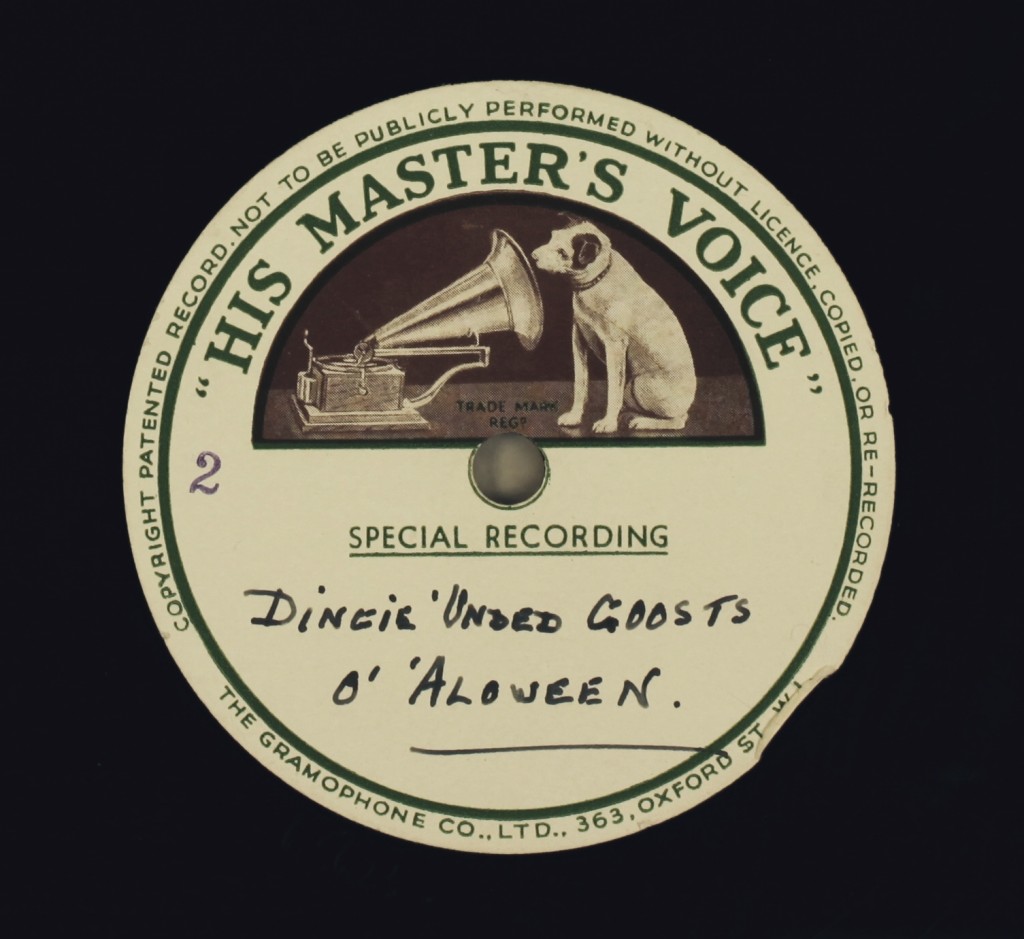In the first of our new Curiosity Cabinet series, Hannah Salisbury shares some of the fascinating things to be found in some recently accessioned First World War albums.
In a parlour there were three
A maid, a parlour lamp, and he
Two is company without a doubt
That’s why the parlour lamp went out
These rather cheeky lines were written by Gunner J. Frank of the Royal Garrison Artillery as he recuperated at Hylands House Hospital in Chelmsford, after being wounded at Ypres in August 1917.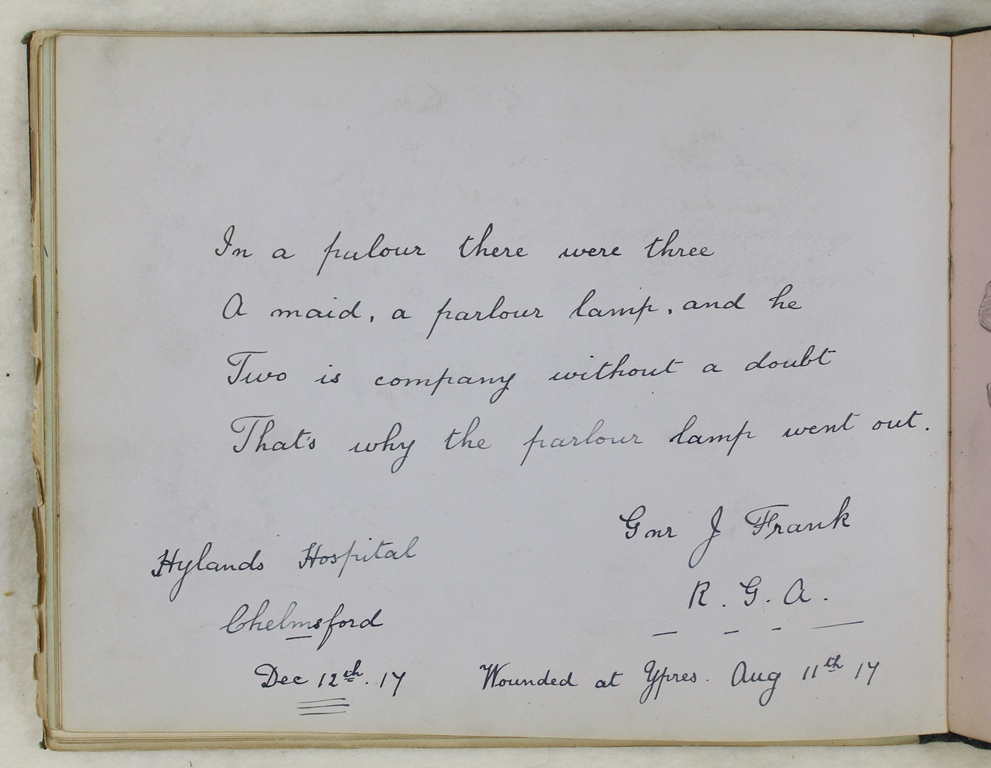
This little trace of Gunner Frank is preserved in an autograph album which belonged to Kathleen May Morley who volunteered as a nurse and worked in several hospitals, including Hylands.
Three albums which were kept by Kathleen during the war years have recently been accessioned into our collections. Two are autograph albums filled with poems, drawings, and notes from men she nursed. The third is a photograph album, and includes pictures of Kathleen as a Voluntary Aid Detachment (VAD), her colleagues, and her patients.
Kathleen was from West Ham, and had grown up in a middle-class household, in a house opposite Ham Park. Her father was the Borough Surveyor for West Ham, and the 1901 and 1911 census returns show that the family had live-in servants. Kathleen was born in 1891, and would have been 23 when the First World War began. She volunteered as a nurse in 1915, and worked in military hospitals in Richmond, Lincoln, Wanstead, Woodford, and at Hylands House in Chelmsford.
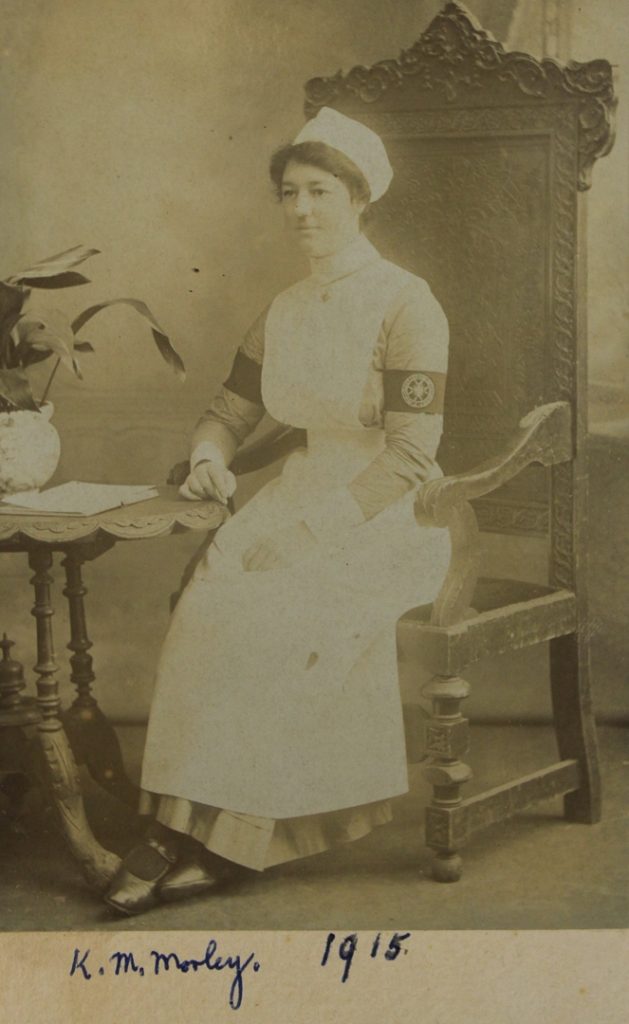
Kathleen in her VAD uniform in 1915
The notes and sketches provide fascinating insights into hospital life and interactions between the patients and staff.
This cartoon, by Private George P. Clark of the King’s Own Yorkshire Light Infantry, shows a conversation between a patient and the Medical Officer:
Patient: And is the operation likely to be fatal, Sir?
M.O.: Dear me, man! – considering the Government is giving you this operation free, I consider your idle curiosity most unseemly!
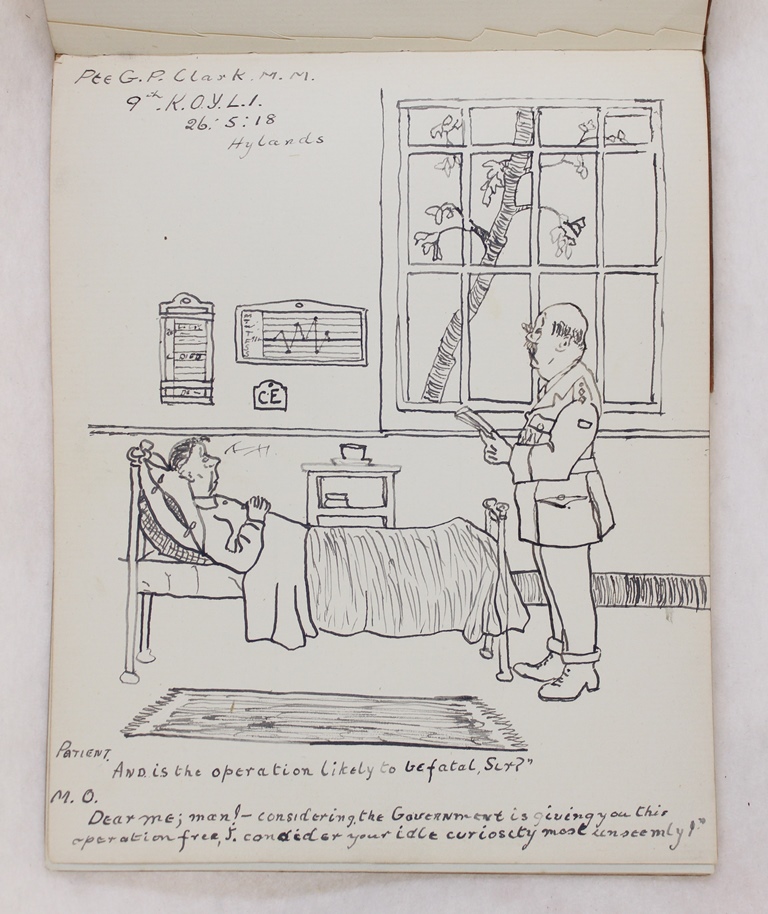
Other poems escaped from hospital life altogether, such as this one by Signaller James Watt of the 13th Royal Scots:
I’d like to be a hairpin
To bind a lady’s hair
Among the transformations
And the pads I’d nestle there
But if I were a hairpin
In Mabel’s tresses black
You bet if I slipped down her neck
You’d never get me back
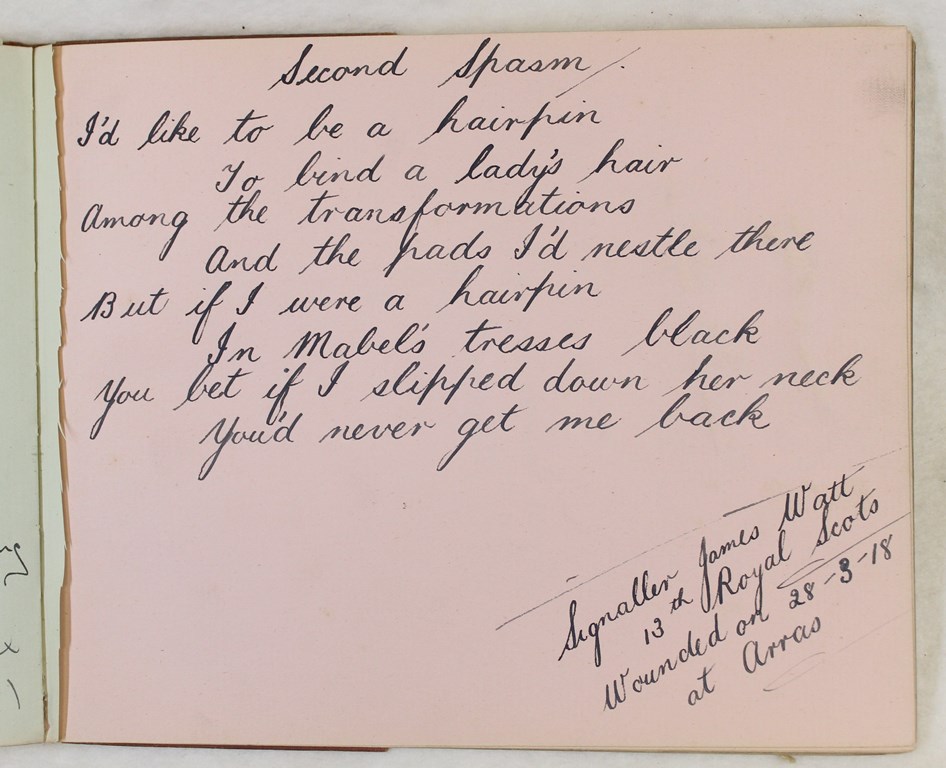
Not everyone, however, rated their literary talents; J.E. Watson left Kathleen ‘A few lines by a bashful poet’ when she was at Woodford Military Hospital in May 1915.
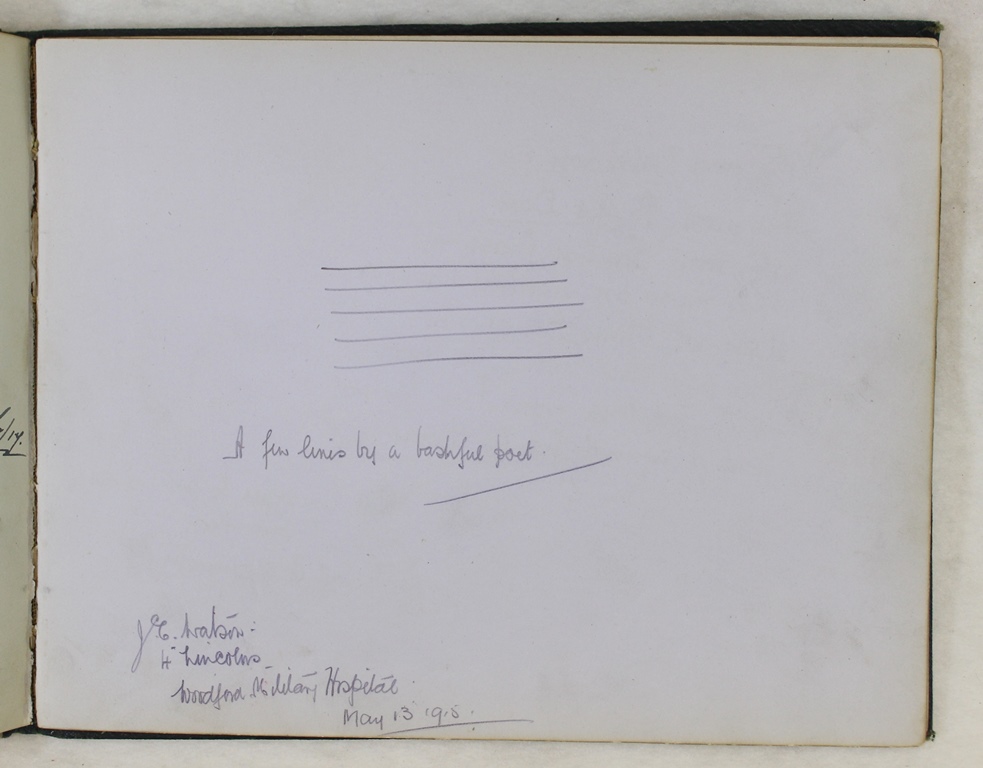
Others, however, were only too happy to share their poetic talents. This little verse was written by Private W. Harris of the 4th Battalion Grenadier Guards:
Thou shalt not covet they neighbour’s wife
His ass thou shalt not slaughter
But thank the Lord ‘tis not a sin
To covet thy neighbour’s daughter
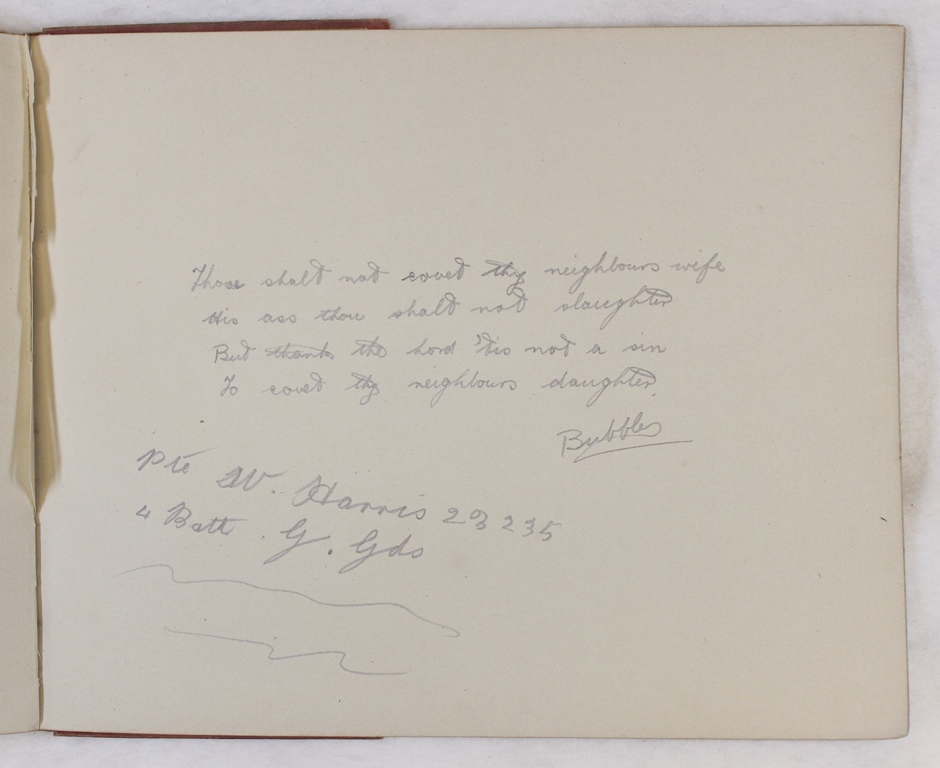
Some of the soldiers who appear in the albums were very far from home. Signaller W. Cowlishaw of the 1st Canadian Artillery Brigade left this message for Kathleen on 15 June 1915 at Wanstead Park Military Hospital:
I wish that I was able, just by your side to stand
And in the good old English way to shake you by the hand
But, as the sea’ll divide us, well, this I cannot do
So to prove that your [sic] remembered still
I’ll write these lines for you
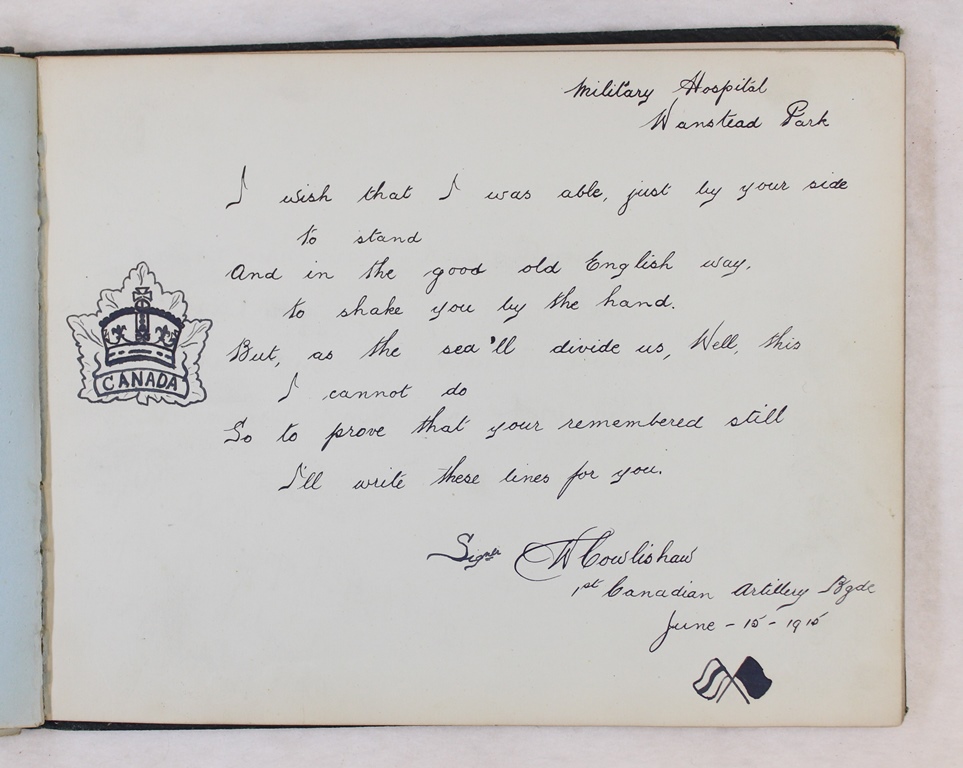
Perhaps the cheekiest poem in the albums was by an Australian, Private C.V. Jordan from Melbourne, who describes himself as ‘the Chair King’:
Our eyes have met
Our lips not yet
But by jove kid
I’ll get you yet
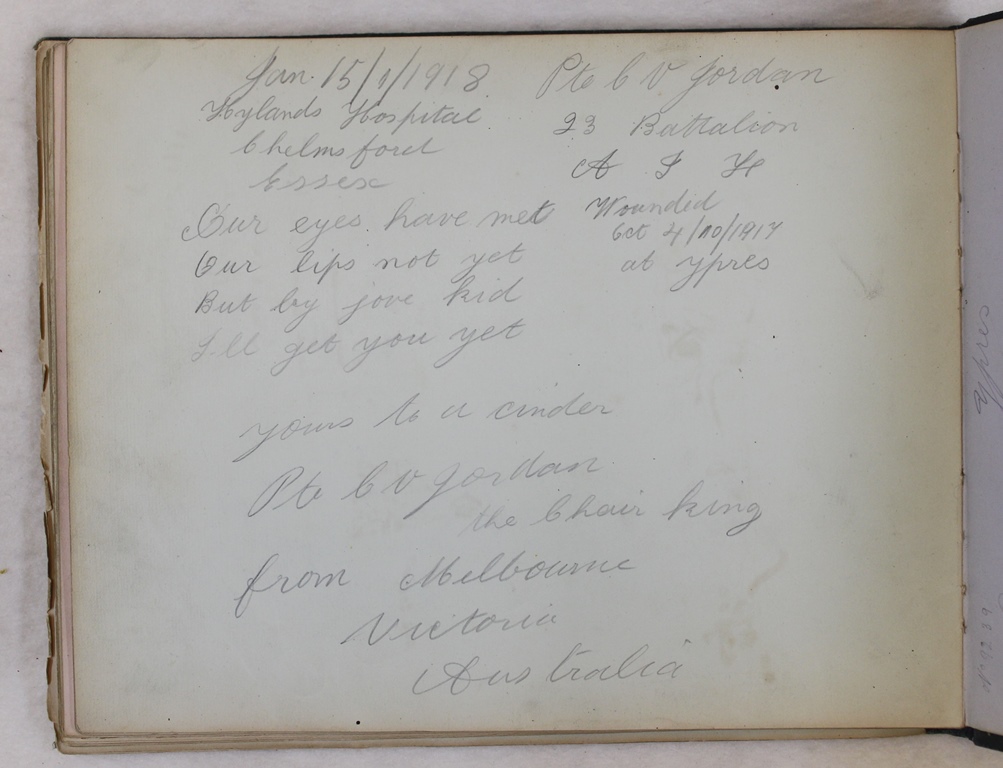
There do not seem to be any American troops represented in the albums, but their influence is clear in this sketch by R.G. Beynon of the 16th Royal Fusiliers. One wounded soldier asks another “How did you get your packet mate?” “Learnin’ baseball orf the Yanks” replies his companion.
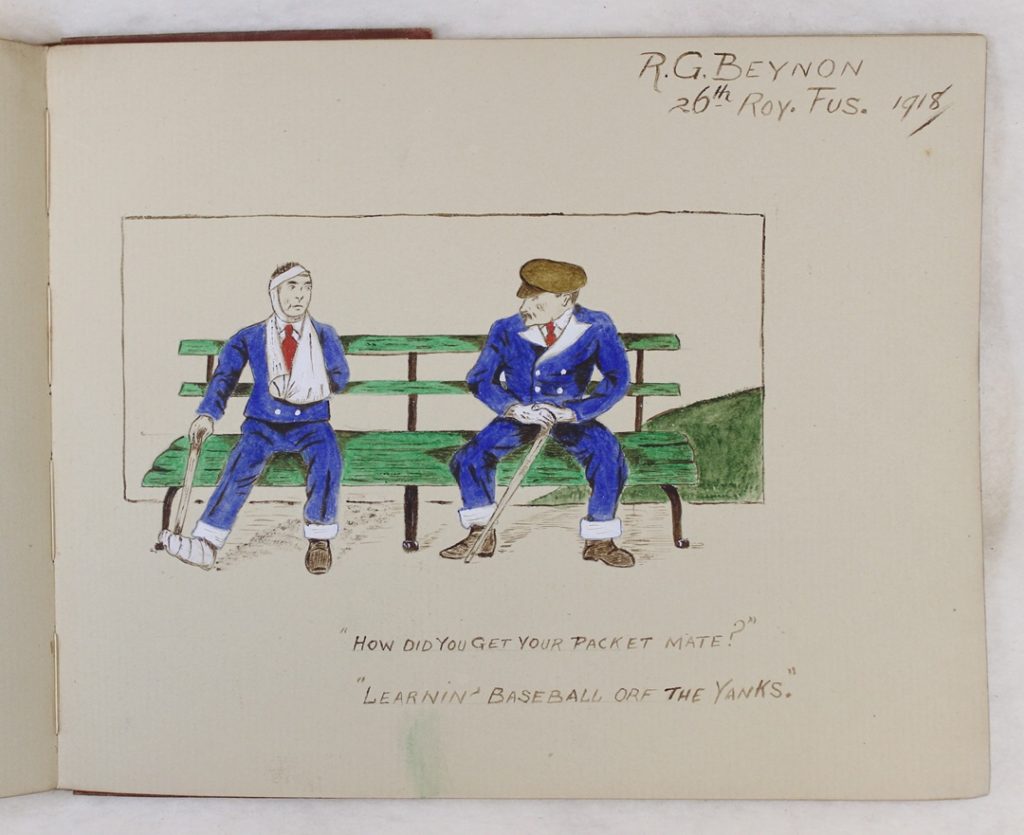
A great deal of affection and respect for Kathleen from her patients is evident throughout all three albums. F.E. Jenkins wrote this glowing review of her healing powers:
A good tip
When you’re feeling down & poorly
And you’re looking pasty white
Try my remedy – Nurse Morley
She’ll fix you up all right
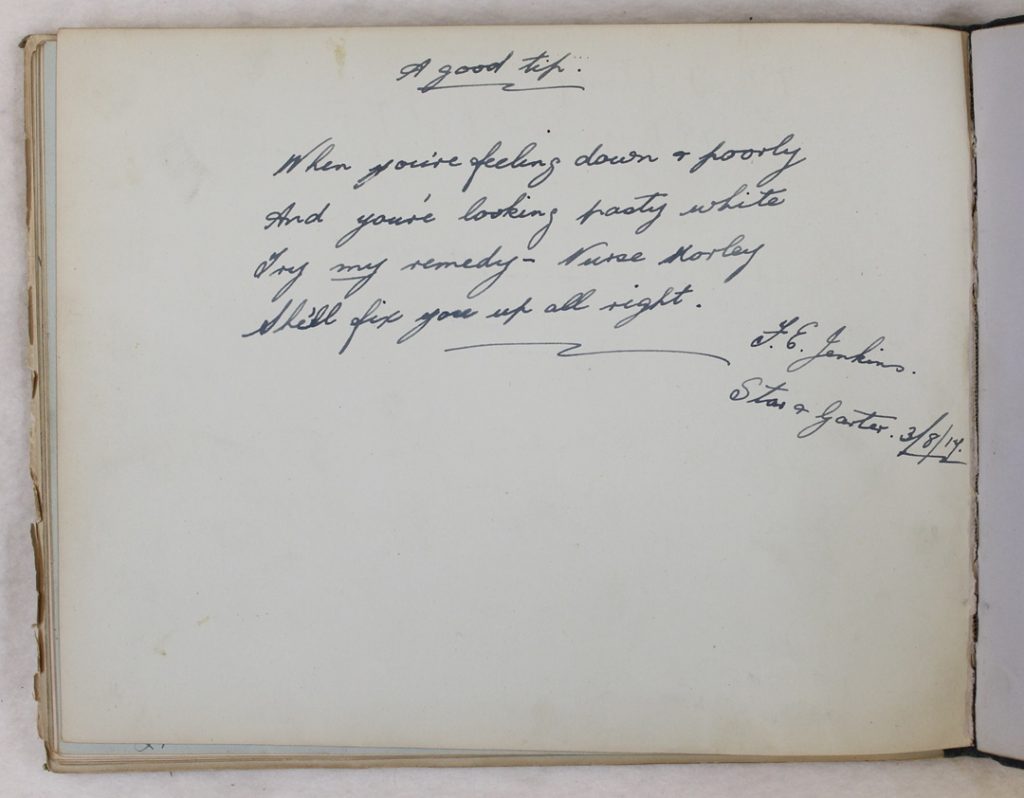
Several of the patients who appear in the photograph album shared in Jenkins’s gratitude to Kathleen; this unusual bedside portrait is signed ‘Yours Gratefully H W Sheald’.
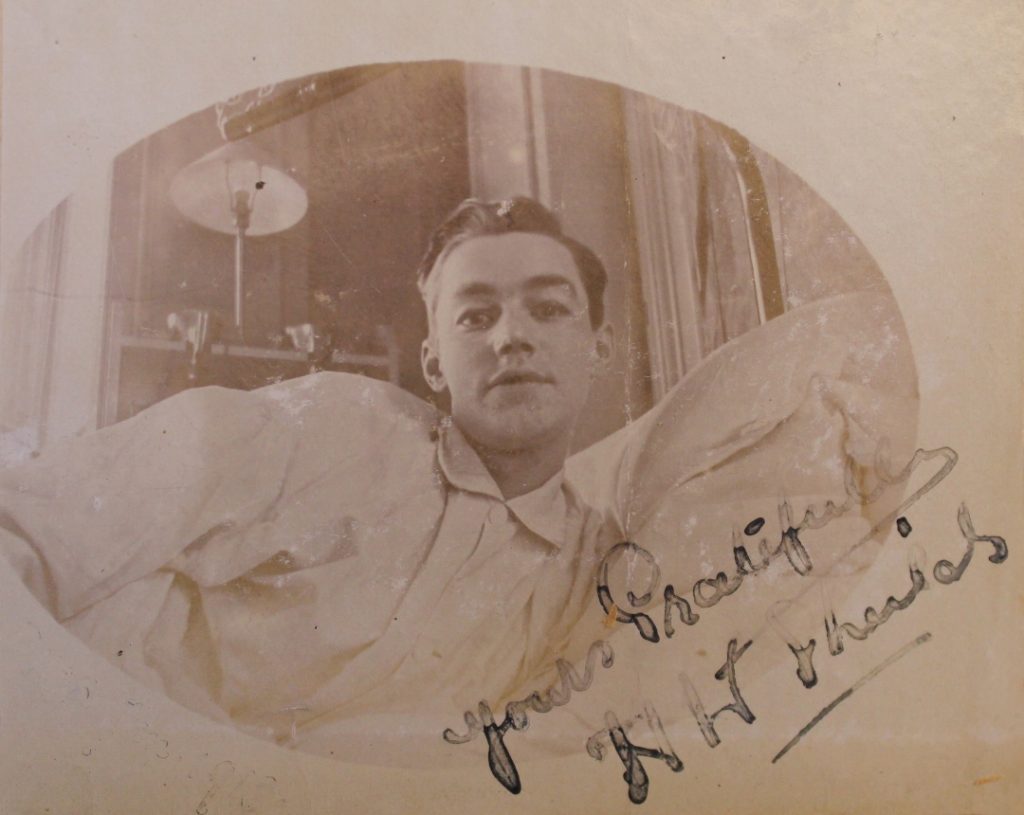
Altogether, the albums provide a fascinating record of life in the hospitals in which Kathleen worked throughout the war.
The two autograph albums and a small selection of pictures from the photo album will be on display in the ERO Searchroom throughout January and February 2019.

